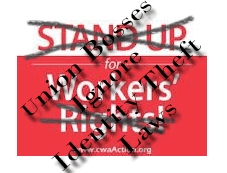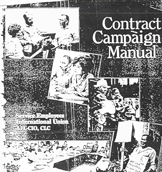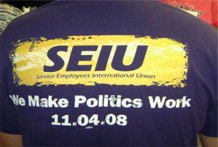Court Allows Union Bosses to Ignore Identity Theft Laws, Harass Employees
Washington Examiner, Mark Mix is president of National Right to Work OpEd:. One November day in 2007, 33 AT&T workers in central North Carolina found out that their Social Security numbers and other private information had been posted for the world to see -- exposing them to identity theft and credit fraud. [media-credit name="The National Right to Work Committee®" align="alignright" width="227"][/media-credit]There has never been any doubt about who posted the workers' private information, but the perpetrators have now escaped justice. All the employees whose names and personal information were posted had exercised their freedom under North Carolina's Right to Work law to resign from membership in a labor union -- the Communications Workers of America, or CWA -- and cease paying union dues. In retaliation, the union bosses of CWA Local 3602 proved that they know no bounds when it comes to making workers toe the union line. When these workers exercised their right to refrain from union affiliation, they were subjected to an extended union campaign of workplace harassment and intimidation. After the workers exercised their Right to Work, CWA union official Judy Brown emailed a spreadsheet that contained the employees' personal data (including their Social Security numbers) to other CWA officials with instructions to "forward this information to your affected locals." CWA Local 3602 union president John Glenn posted the spreadsheet on a public bulletin board. Other CWA union officials likely disseminated the information through email and other means.





